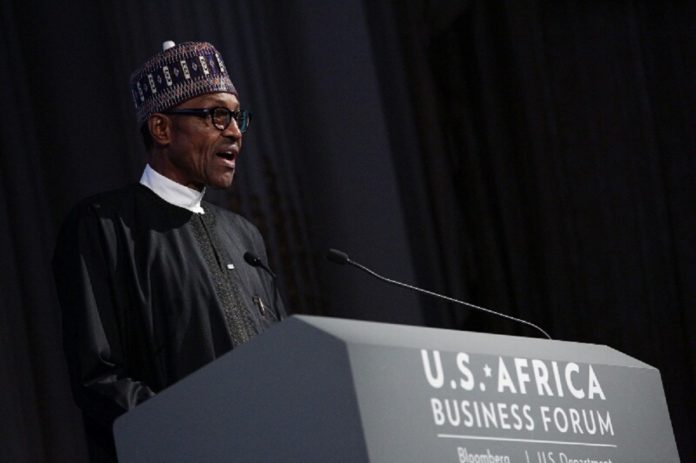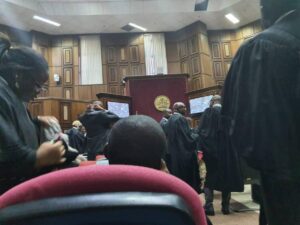According to several credible news outlets, the Southeast is
excluded from the proceeds of, or the spending plan proposed for the $23B
foreign loan recently approved by the Nigerian Senate. That’s unconstitutional
and wrong, to boot.
First, it’s mischievous to suggest that the loan was
approved for the Federal Government. It’s not. Instead, the loan was, as a
matter of law, approved for Nigeria or the Federation of Nigeria and the
proceeds must be bound for the Federation Account, not the account of Federal
Government.
If it’s the Senate that is characterizing the proceeds of
this loan as belonging to the Federal Government alone, that too is
unconstitutional. It’s not the Senate of the Federal Government but a Senate of
the Federal Republic of Nigeria or of the Federation.
Second, it’s not the separate resources of the Federal
Government that will be used in repaying the loan. It’s the resources of
Nigeria or the Federation of Nigeria, particularly oil, of which a substantial
portion comes from the Southeast.
Third, loan or not, the $23B should count as REVENUE (or
proceeds) accruing to the Federation of Nigeria, not the Federal Government of
Nigeria, which is merely a tier of the three tiers constituting the Federation
of Nigeria. The States and the Local Governments are the other two tiers. They
cannot be excluded from the till.
Fourth, Section 162(1) of the Constitution provides that
“The Federation shall maintain a special account to be called “the
Federation Account” into which shall be paid ALL REVENUES collected by the
Government of the Federation, EXCEPT the proceeds from the personal income tax
of the personnel of the armed forces of the Federation, the Nigeria Police
Force, the Ministry or department of government charged with responsibility for
Foreign Affairs and the residents of the Federal Capital Territory, Abuja”.
As can be seen from above, LOANS are not one of the
‘proceeds’ exempted from the Federation account. To be sure, the same
Constitution defined “revenue” at Section 162(10) by stating that “For the
purpose of subsection (1) of this section, “revenue” means any INCOME
or RETURN accruing to or derived by the Government of the Federation from ANY
SOURCE and includes- (a) ANY RECEIPT, however described, arising from the
operation of any law…”.
As can easily be gleaned from the plain texts of above
provisions, ‘loans’ can comfortably fall under the category of ‘any source’ or
‘any receipt’, howsoever described.
Further, Section 162(3) of the same Constitution provides
that “ANY AMOUNT standing to the credit of the Federation Account shall be
distributed among the Federal and State Governments and the Local Government
Councils in each State on such terms and in such manner as may be prescribed by
the National Assembly”.
This mean that the Constitution is concerned with ANY
AMOUNT, which plain meaning is simply that loans are not excluded from amounts
or monies ‘standing to the credit of the Federation Account’.
And the said ‘prescription of the National Assembly’ that
the Constitution strictly requires before such amounts are distributed was
promulgated as an Act, known as “Allocation of Revenue (Federation Account,
Etc) Act”.
Under this Act, the amount standing to the credit of the
Federation shall be distributed as follows: Federal government – 52.68 percent,
States – 26.72 percent, Local Governments – 20.60 percent, with 13 percent
derivation revenue going to the oil producing states, of which Southeast
currently has 2 States.
It is pertinent to note that the ‘13 percent derivation’
underscores the prime role oil plays in the revenue of the Federation of
Nigeria. So, in the reckoning of how this loan is to be distributed or spent,
Nigeria must be mindful of the unarguable fact that most (if not all) of the
interest and the ultimate repayment of the principal will come from oil revenue
generated from States that includes 2 Southeastern States but excludes most of
the States where a lion share of this loan is proposed to be spent.
Taken further, and as is surely the case in societies guided
by ordinary fairness and justice, this loan should have been subject to a 13
percent ‘first line charge’, to be distributed to the oil-producing States in
the recognition that they will, to the exclusion of all other States, bear the
entire brunt of repaying this loan.
To be sure, it is only after complying with the
constitutional sharing formula that the Federal Government shall be free to
spend its statutory share anywhere and anyhow it likes, and it may then decide
to exclude the Southeast, as it often does.
Aloy Ejimakor is a Legal Practitioner based in Abuja.
You may be interested

NPFL Fines Kwara United N6m For Broadcast Breach
Webby - April 24, 2024Kwara United have been charged for providing false information which led to a fixture adjustment that disrupted the live television…

Osimhen: Leaving Napoli Will Make Me Cry
Webby - April 24, 2024Victor Osimhen has hailed Napoli fans and admitted he will probably “cry” when leaving the club.Osimhen is expected to leave…

Slot Can Be Perfect Replacement For Klopp –Van Basten
Webby - April 24, 2024Netherlands legend Marco van Basten believes Feyenoord manager, Arne Slot has the capability take over from Jurgen Klopp as Liverpool…


















![American Pastor, David Wilson Seen Eating The Box Of Woman Who Isn’t His Wife [Video]](https://onlinenigeria.com/wp-content/uploads/2019/10/american-pastor-david-wilson-seen-eating-the-box-of-woman-who-isnt-his-wife-video-150x150.jpg)









